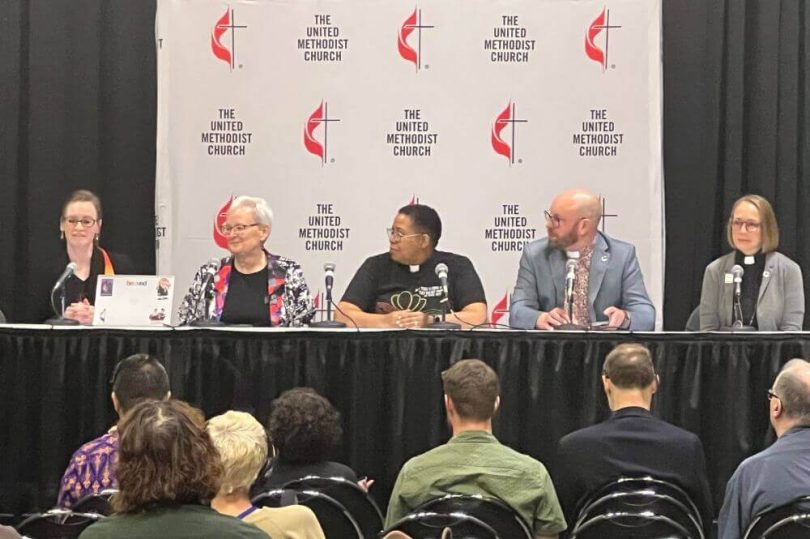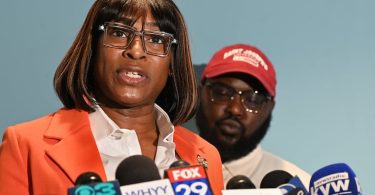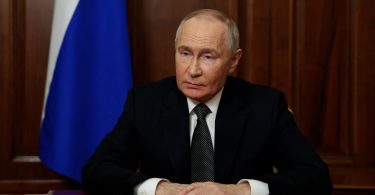On October 23rd, the United Methodist Church (UMC) General Commission on Archives and History (GCAH) will host a kickoff celebration on the New Jersey campus of UMC-affiliated Drew University for the new Center for LGBTQ+ United Methodist Heritage.
Since the latest UMC General Conference, the denomination has defended its newly permissive sexual ethic as merely a neutral position. Although not forced, members are free, UMC officials insist, to support and engage in LGBTQ activity without violating biblical principles.
Despite these claims, the UMC is decidedly not “neutral” in its approach and celebration of the LGBTQ practices.
Summarized by United Methodist Communications official The Rev. Taylor W Burton Edwards, at the 2020/2024 General Conference, delegates lifted mandatory prohibitions in the denomination’s Book of Discipline. Yet, “Discretion remains.” Edwards claims the stance to be “neutral” because the UMC “does not actively approve homosexual relations.” It merely allows them.
However, the new LGBTQ center clearly approves of homosexual relations with no semblance of neutrality. Framing the celebration, Dr. Ashley Boggan, GCAH general secretary, claims the purpose of the new center will be to “intentionally collect, preserve and share Queer Methodist history.” Furthermore, “We celebrate that we are finally living into our true identity as people called United Methodists” (emphasis added). That an embrace of an LGBTQ identity can be a true identity, that is given by God, is by no means a merely neutral claim.
Instead, the UMC seems ready to put an end to orthodoxy. Already, only a few months after the General Conference, the UMC’s actions suggest they wish to fulfill Richard John Neuhaus’s Law: “Where orthodoxy is optional, orthodoxy will sooner or later be proscribed.” The UMC cajoles members by stating the shift as merely an option while not tolerating the option to discourage LGBTQ practices. Returning to Edwards, the current Social Principles for United Methodists “implore families and churches not to reject or condemn lesbian and gay members and friends.” At the same time it promotes the traditional ethic and the LGBTQ ethic as equal options, it attempts to shield one from criticism. Orthodoxy remains an option only insofar as it does not propose that it is normative for others.
Additionally, the GCAH receives its funding, in part, from church apportionments. Even if you and your local church disagree with the LGBTQ celebration and new sexual ethic permitted by the latest General Conference, your apportionments are being used to promote this celebration. Church members and local churches, then, are not given the choice to support gay marriage; their apportionments are being used for its celebration regardless.
If the language and events themselves were not enough to remove any doubt about the UMC’s non-neutral stance, the kickoff also includes a film screening designed to re-write the Church’s sexual teachings. The documentary, 1946, asks “What if the word ‘homosexual’ was never meant to be in the Bible?” From there, it claims to chronicle how a mistranslation “changed the course of modern history.” This screening serves as another example of the UMC attempting to revise church history to discredit orthodox teachings.
Even if granting the film is correct that the word “homosexual” does not belong in its specific New Testament passage, the Christian sexual ethic is not founded merely on the use of one word as the film suggests. The filmmakers and UMC at large would need to confront the Genesis creation account, Levitical laws, Jesus’s teachings about marriage, and numerous other passages throughout both the Old Testament and New Testament. By embracing 1946, the UMC promulgates the idea that LGBTQ “prejudice” is an ill-founded, modern bias with no theological foundation. If desiring to change long-standing doctrines of the church, the UMC ought to confront them in good-faith as presented in scripture instead of 1946’s straw man depiction of the Christian sexual ethic.
While not entirely a new development, the launch of Center for LGBTQ+ United Methodist Heritage again demonstrates the UMC’s inconsistencies between idea and application. The UMC urges its members and other Churches to believe they are not discrediting orthodox beliefs. Instead, they are simply expanding the teaching to be more inclusive and loving. Nevertheless, they use apportionments to promote LGBTQ practices, they support a film that attacks the traditional sexual ethic without reference to the ideas forming it, and they tolerate orthodox doctrine only when it does not propose normative beliefs.
Under the guise of neutrality and inclusivity, the UMC chips away at the foundational beliefs of the church. While claiming to be merely another option for which individual churches can decide for themselves, the UMC strongly discourages opposition to the new ethic. At least in their approach, the UMC seem to be proving Neuhaus’s words: “the old orthodoxy that is optional is proscribed by the new orthodoxy, which is never optional.”







